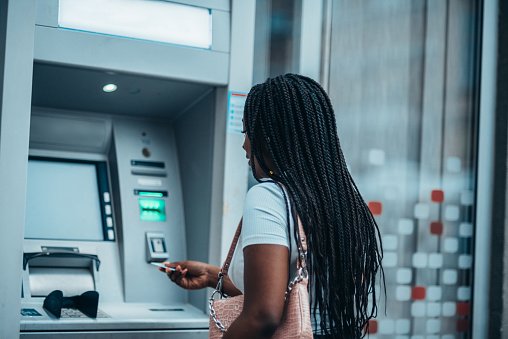Introduction.
Opening a bank account is an essential step towards financial inclusion and independence.
In Nigeria, having a bank account is not only a convenient way to manage your finances but also a requirement for many transactions such as receiving payments, making transfers, and accessing loans. However, the process of opening a bank account can be daunting, especially for first-timers.
In this article, we’ll guide you through the steps of opening a bank account in Nigeria, including choosing a bank, selecting an account type, gathering the required documents, visiting the bank, funding your account, and activating it.
Whether you’re a Nigerian citizen or a foreigner, this guide will provide you with all the information you need to open a bank account in Nigeria.
What Is Bank Account?
A bank account is a financial account maintained by a bank or other financial institution on behalf of a customer.
It allows the customer to deposit and withdraw money, make transactions, and access a range of financial services.
A bank account is typically identified by a unique account number, and it can be accessed through various channels, including in-person at a bank branch, through online banking, or using an ATM.
A bank account can be used for various purposes, such as receiving payments, paying bills, saving money, investing, and accessing credit facilities.
There are different types of bank accounts, including current accounts, savings accounts, fixed deposit accounts, foreign currency accounts, and others.
The type of account you choose will depend on your financial needs and goals.
Overall, a bank account is a vital financial tool that provides a convenient and secure way to manage your money, access financial services, and achieve your financial objectives.
Why Should I Open a Bank Account In Nigeria?
Having a bank account in Nigeria is a crucial aspect of financial independence and security. A bank account provides a convenient and safe way to manage your money, make transactions, and access financial services.
Whether you’re a student, business owner, or employed professional, here are some reasons why you need a bank account in Nigeria.
1. Convenient and Safe Way to Manage Your Money.
A bank account allows you to keep your money in a safe place and access it whenever you need it.
You can deposit cash, and cheques, or make transfers into your account and withdraw money when necessary.
This eliminates the need to carry cash around, which can be risky and inconvenient. Furthermore, with online banking, you can easily check your account balance, transfer funds, and pay bills from the comfort of your home or office.
2. Access to Financial Services.
Having a bank account opens up a range of financial services that can help you achieve your financial goals.
For instance, you can access loans, credit facilities, and overdrafts to finance your education, business, or personal projects.
You can also invest your money in fixed deposits, mutual funds, and other investment vehicles offered by the bank.
Additionally, having a bank account can help you build a credit history, which is essential when applying for loans or other financial products.
3. Receive Payments and Salaries.
Many employers and clients prefer to make payments directly into a bank account. This reduces the risk of fraud and ensures that payments are made on time.
By having a bank account, you can receive your salary, pension, or other payments promptly, and you can easily track your income and expenses.
4. Access to International Transactions.
If you’re a business owner or a frequent traveller, having a bank account in Nigeria can be advantageous.
Many banks offer foreign currency accounts, which allow you to receive and make international transactions in different currencies.
You can also use your bank account to receive and send money from abroad, making it easier to do business globally.
How do I Open a Bank Account In Nigeria?
Opening a bank account in Nigeria is a simple process that can be completed in a few easy steps.
Whether you’re a Nigerian citizen or a foreigner, having a bank account is essential for managing your finances, receiving payments, and making transactions.
In this article, we’ll guide you through the process of opening a bank account in Nigeria.
1. Choose a Bank.
The first step to opening a bank account in Nigeria is to choose a bank. There are many banks in Nigeria, both local and international, with a wide range of products and services.
Consider factors such as the bank’s reputation, fees, interest rates, and accessibility before making a decision.
2. Choose a Type of Account.
The next step is to choose the type of account you want to open. Nigerian banks offer different types of accounts, such as savings accounts, current accounts, and domiciliary accounts.
Each account type has its features, benefits, and requirements. For instance, savings accounts typically have lower minimum deposit requirements and interest rates than current accounts.
3. Gather the Required Documents.
To open a bank account in Nigeria, you’ll need to provide some documents. These include:
- A valid means of identification such as a national ID card, international passport, driver’s license, or voter’s card.
- Proof of address such as a utility bill, tenancy agreement, or bank statement.
- Passport photographs.
- Some banks may require additional documents, such as a reference letter or proof of income.
4. Visit the Bank.
Once you’ve chosen a bank and gathered the required documents, visit the bank branch to open your account.
You’ll need to fill out an account opening form and provide your documents to the customer service representative.
The bank may also conduct a KYC (Know Your Customer) process to verify your identity and address.
5. Fund Your Account.
After your account has been opened, you’ll need to fund it to start using it. You can do this by depositing cash or transferring funds from another account. Some banks also allow you to make deposits through mobile banking or ATMs.
6. Activate Your Account.
Finally, you’ll need to activate your account by obtaining an ATM card, setting up internet banking, or mobile banking.
These channels will allow you to make transactions, check your account balance, and access other banking services.
Conclusion.
Having a bank account in Nigeria is a must for anyone who wants to manage their finances effectively and access financial services.
Whether you’re a student, entrepreneur, or employed professional, a bank account offers a convenient and secure way to manage your money, receive payments, and access financial products. By opening a bank account in Nigeria, you’ll be on your way to financial independence and security.
Finally, In conclusion, opening a bank account in Nigeria is a straightforward process that requires a few simple steps.
By choosing a bank, selecting an account type, gathering the required documents, visiting the bank, funding your account, and activating it, you can enjoy the benefits of having a bank account in Nigeria.






GIPHY App Key not set. Please check settings